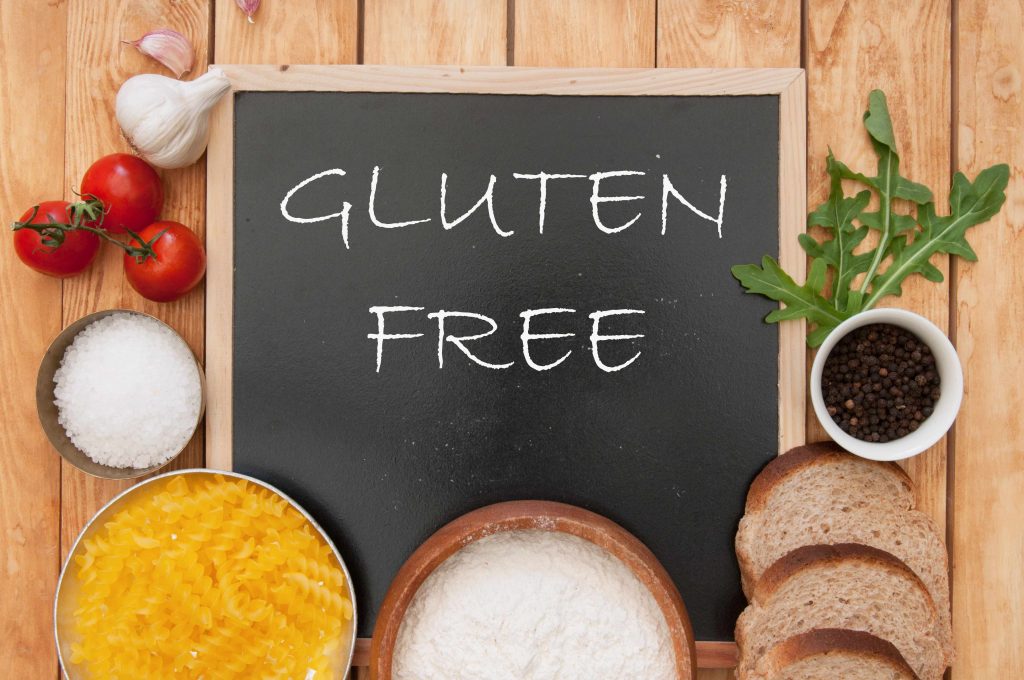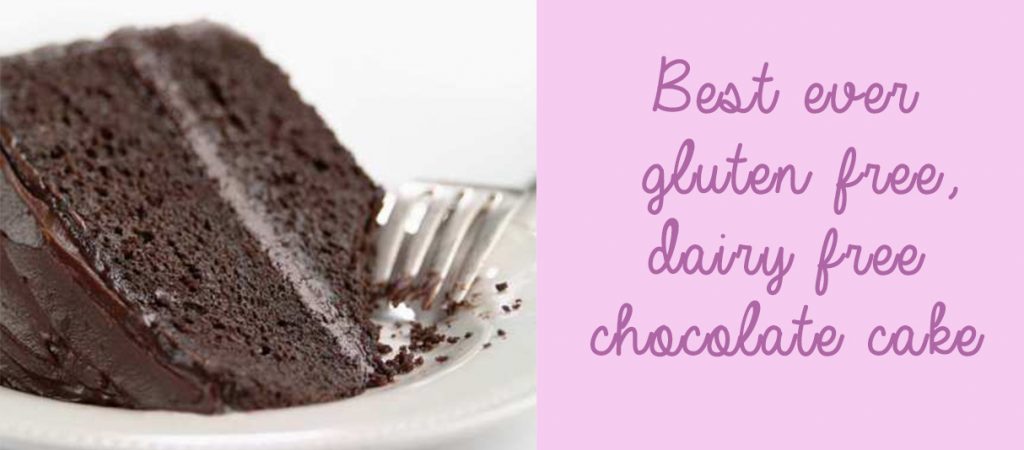Coeliac disease – how a dietitian can help

COELIAC DISEASE How can a specialist dietitian help optimise people diagnosed with coeliac disease? This is a great question and one that is asked every day by enquiring patients. Here at 121 Dietitian we have helped thousands of people, many diagnosed with coeliac disease. It can be overwhelming to learn of such a diagnosis and it can be difficult to know who to turn to. Thankfully we are the experts in optimizing health for all conditions and we have a dedicated programme that takes all the worry and stress away! WHAT IS COELIAC DISEASE? Coeliac disease is an autoimmune disease triggered in those people who are genetically at risk. This trigger causes your immune system to attack your own tissues when you eat gluten. The gastrointestinal tract is the targeted organ for this attack and the consequences are many. Interestingly 35-40% of the general population have the genes that predispose a person to celiac disease, but only around 1% of the general population develop the autoimmune disorder. SYMPTOMS There are several classical symptoms and a few more not so common, so if you feel you have an issue with Gluten you may find this helpful in getting a diagnosis. The most well-known symptoms of coeliac disease include diarrhoea (pale foul smelling fatty stools) fatigue bloating weight loss stomach ache Other not so well know coeliac disease symptoms include: indigestion constipation itchy rash nerve damage (B vitamin deficiencies) malnutrition – not getting enough nutrients from food, infertility problems – women with coeliac disease can have difficulty becoming pregnant disorders that affect coordination, speech, and balance (B vitamin deficiencies) Children with coeliac disease: have all the above symptoms along with nausea and vomiting may not grow at the expected rate and may have delayed puberty. And some people do not have any notable symptoms and this diagnosis comes as a complete surprise. IMPORTANT COELIAC STATISTICS 1 in 100 -people worldwide are affected by coeliac disease In Europe: Germany, The Scandinavian countries, Ireland, and the United Kingdom population have a higher prevalence of coeliac disease ~ 1000 to 1500 per 100,000 individuals Women to men ratio 3:1 Of patients diagnosed with Coeliac disease 50% still report symptoms while following a gluten-free diet (this is where 121 Dietitian can help) Family members 1 in 10 also have coeliac disease If you are diagnosed with coeliac disease you have a x 2 increased risk of coronary artery disease You have an increased risk of small bowel cancers x 4. COELIAC DISEASE TESTING Coeliac disease diagnosis can be made by your GP. They will take a history of your symptoms and arrange a blood test to check for antibodies that are present in the blood of people with coeliac disease. You need to keep eating gluten foods otherwise you may have an inaccurate blood test result. If this is +ve you will then be referred to a gastroenterologist to confirm this with an endoscopy and a biopsy. They will also be looking for blunt villi. Villi are finger-like projections in the gastrointestinal tract required for nutrient absorption, and when flattened do not have enough surface area to absorb sufficient nutrients. COELIAC DISEASE TREATMENT As this is an autoimmune disease – Gluten a protein found in grains is the trigger, coeliac disease is treated with a gluten-free diet. If you have been experiencing symptoms for a while with malabsorption you may need vitamins and minerals to be replaced. A specialist Dietitian who is trained in gastrointestinal diseases is the best person to assist you with optimising your diet and health for the long term. COELIAC MEDICAL TREATMENTS Coeliac disease unfortunately does not have a cure. So a strict gluten-free diet will help control symptoms and prevent long-term complications. What can often be a problem is when people have none to mild symptoms, or their symptoms go away within a few weeks of the diet, they can continue to eat or sneak some gluten and over time if not addressed serious complications can occur. Many years ago my patients often presented as very underweight, anaemic, exhausted, and having multiple nutrient deficiencies. Today this is not always the case. Many people are now being diagnosed who come to see me eating an unhealthy poor quality diet. Some carry excess weight and are nutrient deficient from this and less so from malabsorption. The worst for these people is that, if not educated in the right choices, they replace their poor gluten diet with gluten-free processed unhealthy choices. Unhealthy choices lead to the consumption of insufficient nutrients causing the patient to feel poorly and gain further weight. It is really important to therefore ensure that your gluten-free diet is designed to suit you and is wide in variety, healthy and balanced. Overall it has been fantastic that there has been an increase in the range of available gluten-free foods in the past 10 years. But the negative to this is that it is now possible to eat a diet full of unhealthy choices instead of focusing on a healthy and varied gluten-free diet. WHAT FOODS TRIGGER COELIAC DISEASE? Foods and fluids that contain Gluten include: Wheat and derivatives of wheat such as: Durum Emmer Couscous Semolina Spelt Farina Farro Kamut Einkorn wheat Rye Barley Triticale Malt including, malted milk, milkshakes, malt extract, malt syrup, malt flavouring, malted barley flour, malt vinegar Brewer’s Yeast Wheat Starch that has not been processed to remove gluten to below 20ppm Oats are contaminated in processing and packaging so are not allowed even though they do not naturally contain gluten. GLUTEN FOOD EXAMPLES The following are examples of popular foods containing gluten -so these are no longer suitable to eat – lifelong. bread pasta cereals cakes and pastries biscuits or crackers pies gravies, stocks and sauces beer WHAT HAPPENS IF SOMEONE WITH COELIAC DISEASE EATS GLUTEN? I advise and treat hundreds of newly diagnosed and refractory Coeliac patients. It is a common fear that when not in control of the cooking they are going to
Gluten free dairy free chocolate cake

We recently celebrated my birthday & my daughter Laura very kindly baked a delicious chocolate cake. As the recipe is for a Gluten free dairy free chocolate cake, it means our entire family can enjoy it. Knowing how hard it can be to get a good recipe for a dairy free, gluten free chocolate cake, Laura wanted to share this tried & tested recipe with you. We hope you like it as much as we did. Ingredients for Gluten free dairy free chocolate cake 75g cocoa powder 137ml boiling water 150g softened butter (Dairy free) 400g caster sugar 262g self raising flour 1 1/2 tsp baking powder 1/4 tsp xanthan gum 4 eggs, beaten 187ml almond milk For the icing 150g dark chocolate 250g butter (dairy free) 250g icing sugar Pinch of salt Method for making Gluten free dairy free chocolate cake Pre-heat oven to 170°c Grease 2 round baking tins Sift cocoa into a large bowl. Add boiling water and butter, mix until smooth Pour in the caster sugar, self raising flour, baking powder & xanthan gum Mix the eggs & milk into the dry items, making a smooth batter Pour into cake tins Bake for approximately 40 mins Remove from the oven and allow to cool While your cake is cooking prepare the icing – begin by putting chocolate into bowl over a pan of boiling water to melt In a large bowl, place butter and icing sugar and mix well until combined Add melted chocolate and mix Once cake is cooled, spread between layers, top as desired and enjoy If you are unsure of how to change your eating habits, or need help optimising the foods you eat please do contact us. We would love to help you or your family and friends with any nutrition related queries big or small. In the meantime do please check out our 121Dietitian Shop If you have enjoyed this blog we would love you to share this with your family and friends on your social media channels. Why not visit our YouTube Channel for more on keeping your health optimal. How can a Dietitian help with healthy Gluten and Dairy free foods Book a consultation via our Online Portal About Gillian Killiner Check out our tailored dietary programmes Gillian x [instagram-feed] Information checked & correct on 16th May 2018 and 1st January 2023.